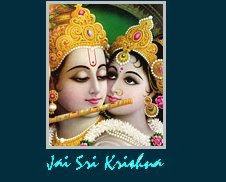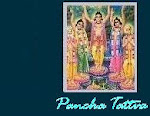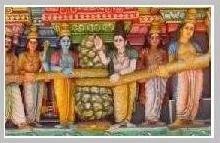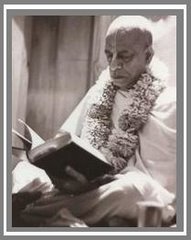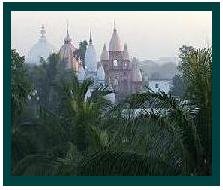Pleasing, active engagements exclusively meant for Sri Krishna is indeed bhakti. It stands to reason that perpetual,ardent endeavour (anusilanam) must be immediately pleasing to the person it is meant for. Thus, it would seem we have discovered the definition of bhakti in the term krishnanusilanam itself.
However, this symptom of bhakti is tainted by two flaws (dosha). In some respects it extends to include too much (ativyapti-dosha) and in other respects, it does not extend far enough (avyapti-dosha). Those symptoms that are not tainted by the faults of under-extension (avyapti), over-extension (ativyapti) or inconsistency are the correctly derived symptoms of bhakti.
If bhakti were defined solely as krishnanusilanam (perpetual, ardent endeavour meant exclusively for Sri Krishna), or to please Sri Krishna, then, as we will see, it would serve to establish even spiteful demons like Kamsa’s most fearsome wrestlers, Canura and Mushtika, as devotees. Herein, the symptoms of bhakti have extended to include too much. In other words, ativyaptidosha has arisen.
When Sri Krishna heard the challenging words of Canura and Mushtika upon entering Kamsa’s royal wrestling arena, the joy of heroism (vira-rasa) surged within Him. Whenever a warrior receives blows from his opponent, he is thrilled. Thus, when Krishna received repeated blows from Canura and Mushtika, who perpetually endeavoured to attack Him, He naturally experienced the happiness that arises from heroism. Should one then deem Canura and Mushtika to be bhaktas? Since their endeavours were meant for Sri Krishna’s undoing, and not at all for His enjoyment, no one will ever conclude that they are bhaktas.
Conversely, defining bhakti simply as pleasing Sri Krishna, would imply that someone who causes Krishna any displeasure at all is not a bhakta and that his actions are not expressions of bhakti. For example, once when Mother Yasoda was breastfeeding baby Krishna, the milk she had been heating began to boil over. At once, she removed Sri Krishna from her lap, much to His displeasure, and ran to save the milk. Krishna was so enraged that, biting His lips, He smashed a nearby clay pot that was full of yoghurt. He was so intensely unhappy at being denied His mother’s breast milk to His full satisfaction that He burst into tears.
When Mother Yasoda denied Sri Krishna full satisfaction, He was not even slightly pleased with her. Hence, in this case, defining bhakti as krishnanusilanam alone prevents the definition from extending to include these actions. In other words, avyapti-dosha has arisen. Mother Yasoda is the presiding goddess of immaculate prema-bhakti in vatsalya-rasa (parental love of God). Her every endeavour is for the sake of serving Sri Krishna. In this pastime, she had thought to herself, "My breast milk alone will not fully nurture Sri Krishna, but the milk on the stove, which is now boiling over, will protect His life!" Although Mother Yasoda was the queen of Vraja and was always surrounded by unlimited servants and maids, she would personally milk the best cows and heat their excellent milk. Then, with her own hands she would prepare the finest butter for Krishna.
"Even if I displease Krishna for the time being," she had thought, "I must save this milk for Him." Thoughts like this would cause her prema-bhakti to swell to exceptional heights and thereafter permeate all of Her actions. Her actions can never be anything but bhakti.
more

